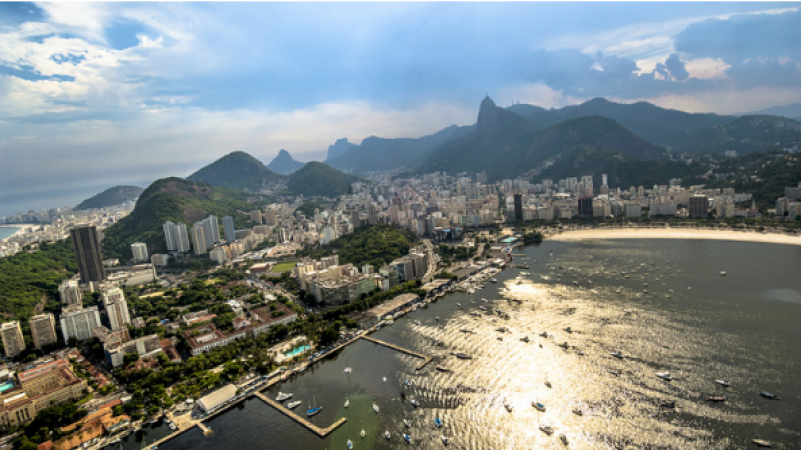
Rio de Janeiro: Two Iranian warships are now able to dock in Brazil. Sunday's visit will go ahead despite diplomatic hesitation and US pressure.
Vice Admiral Carlos Eduardo Horta Arentz, deputy chief of staff of the Brazilian Navy, announced in the official state gazette (Diario Oficial da Unio) that the Iranian warships IRIS Makran and IRIS Dena have arrived in Rio de Janeiro.
The ships will remain there until March 4, when they leave for the Panama Canal, which separates the American continent.
Also Read: Beijing's peace plan for the ongoing conflict in Ukraine has the support of the Hungarian government
The choice was made despite the US ambassador to Brazil, Elizabeth Bagley, warning Brasilia not to allow the Iranian Navy access to the South American port.
It claimed these vessels "facilitated illegal trade and terrorist activities" at a press conference earlier this month. He continued by saying that so far, no port has been offered for these ships by other countries.
The Iranian warships set sail from Iran's southern coast on their voyage around the world in January. Brazil was supposed to receive the ships in January, but US pressure caused that date to be postponed.
Also Read: Joint NASA and SpaceX mission was suspended because of ignition technical errors
The arrival of ships in a Brazilian port was postponed while President Luiz Inácio Lula da Silva, also known as Lula, plans his trip to Washington to meet with US President Joe Biden.
Tehran's ships are once again welcome in Rio after the two leaders met earlier this month, which, according to their joint statement, "affirms the vital and enduring nature of the US-Brazil relationship."
Lula has a history of ties with the Islamic Republic; In 2009, he welcomed Mahmoud Ahmadinejad to Brasilia in an effort to mediate a nuclear deal between the United States and Iran.
The US and Iran have been at loggerheads since the Islamic Revolution and the hostage crisis of 1979–1981. Iran's potential nuclear energy developments are also fiercely opposed by the US, which argues they would give the Middle Eastern nation access to nuclear weapons.
Also Read: Dr. Ronny Jackson: US president's "cognitive decline" may result in fatalities
Tehran has also been accused by Washington of supporting terrorism. One of Iran's most powerful generals, Qassem Soleimani, was assassinated in 2019 in an airstrike by the Pentagon, further fueling the rivalry between the two countries.